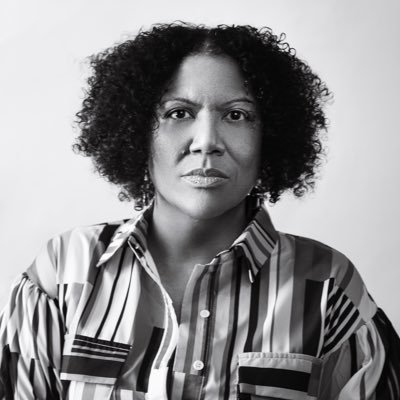after Margaret Walker’s “For My People”
The Lord clings to my hands
after a night of shouting.
The Lord stands on my roof
& sleeps in my bed.
Sings the darkened, Egun tunnel—
cooks my food in abundance,
though I was once foolish
& wished for an emptied stomach.
The Lord drapes me with rolls of fat
& plaits my hair with sanity.
Gives me air,
music from unremembered fever.
This air
oh that i may give air to my people
oh interruption of murder
the welcome Selah
The Lord is a green, Tubman escape.
A street buzzing with concern,
minds discarding answers.
Black feet on a centuries-long journey.
The Lord is the dead one scratching my face,
pinching me in dreams.
The screaming of the little girl that I was,
the rocking of the little girl that I was—
the sweet hush of her healing.
Her syllables
skipping on homesick pink.
I pray to my God of confused love,
a toe touching blood
& swimming through Moses-water.
A cloth & wise rocking.
An eventual Passover,
outlined skeletons will sing
this day of air
for my people—
oh the roar of God
oh our prophesied walking
Published:
2020
Length:
Regular
Literary Movements:
Contemporary
Anthology Years:
2021
Themes:
Faith & Hope
Literary Devices:
After Poems
A poem where the form, theme, subject, style, or line(s) is inspired by the work another poet.
Allusion
an expression designed to call something to mind without mentioning it explicitly; an indirect or passing reference
Enjambment
a line break interrupting the middle of a phrase which continues on to the next line
Epigraph
a short quotation or saying at the beginning of a book or chapter, intended to suggest its theme
Sensory Detail
words used to invoke the five senses (vision, hearing, taste, touch, smell)

